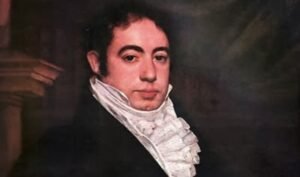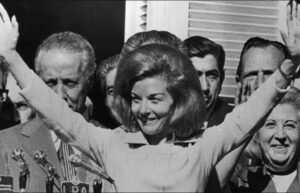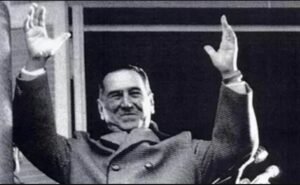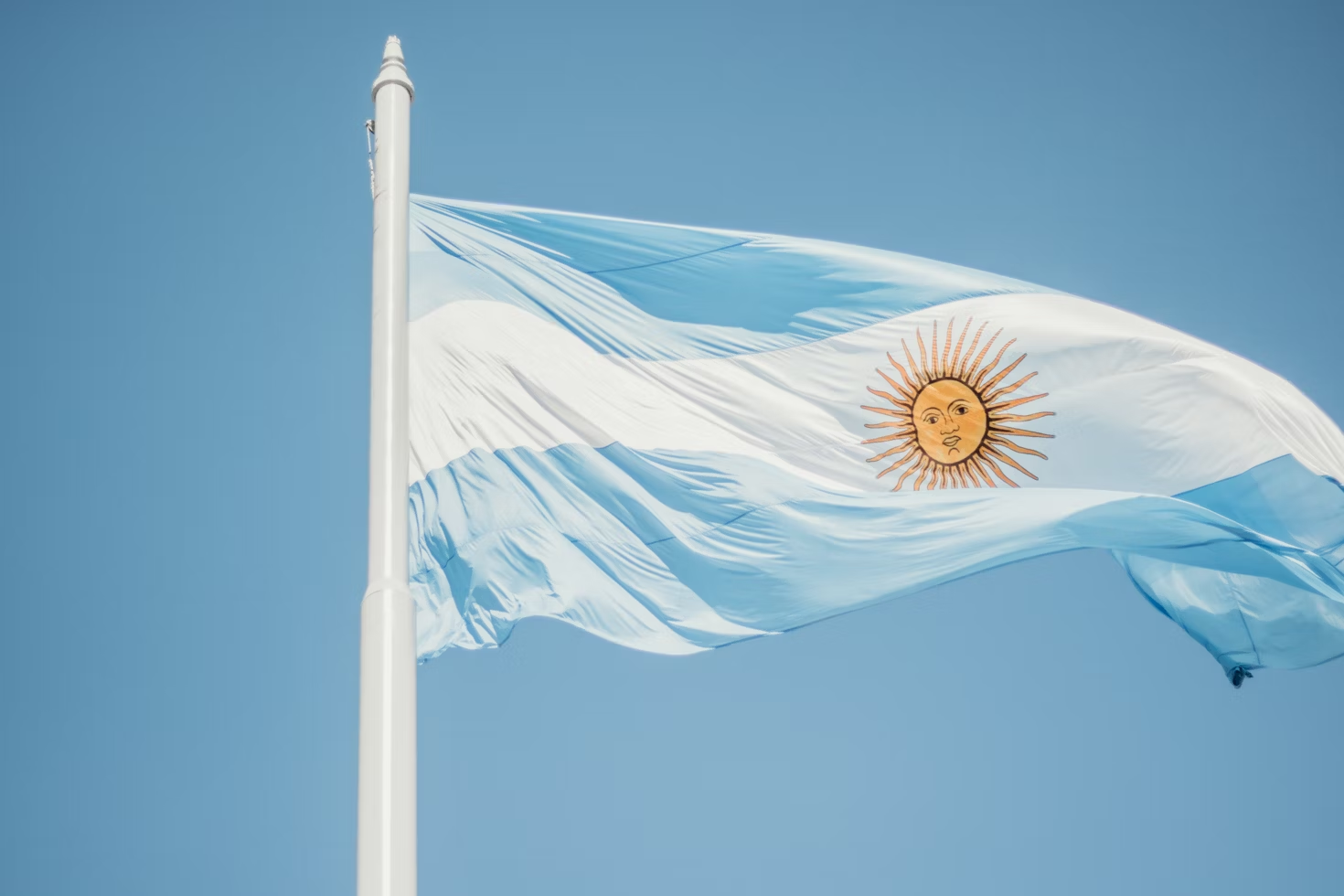This is the list of all the presidents of Argentina from 1861 till date:
| President | Term In The Office | Political Party |
|---|---|---|
| Bartolomé Mitre | 1862–1868 | Liberal Nacionalist |
| Domingo Faustino Sarmiento | 1868–1874 | Liberal |
| Nicolás Avellaneda | 1874–1880 | National PAN |
| Julio Argentino Roca | 1880–1886 | PAN |
| Miguel Ángel Juárez Celman | 1886–1890 | PAN |
| Carlos Pellegrini | 1890–1892 | PAN |
| Luis Sáenz Peña | 1892–1895 | PAN |
| José Evaristo Uriburu | 1895–1898 | PAN |
| Julio Argentino Roca | 1898–1904 | PAN |
| Manuel Quintana | 1904–1906 | PAN |
| José Figueroa Alcorta | 1906–1910 | PAN |
| Roque Sáenz Peña | 1910–1914 | PAN |
| Victorino de la Plaza | 1914–1916 | PAN |
| Hipólito Yrigoyen | 1916–1922 | UCR |
| Marcelo Torcuato de Alvear | 1922–1928 | UCR |
| Hipólito Yrigoyen | 1928–1930 | UCR |
| Enrique Martínez | 1930 | UCR |
| José Félix Uriburu | 1930–1932 | Military |
| Agustín Pedro Justo | 1932–1938 | UCR (Concordancia) |
| Roberto Marcelino Ortiz | 1938–1942 | UCR-A (Concordancia) |
| Ramón Castillo | 1940–1942 | PDN (Concordancia) |
| Arturo Rawson | 1943 | Military |
| Pedro Pablo Ramírez | 1943–1944 | Military |
| Edelmiro Julián Farrell | 1944–1946 | Military |
| Juan Perón | 1946–1955 | Labour (UCR-JR) |
| Eduardo Lonardi | 1955 | Military |
| Pedro Eugenio Aramburu | 1955–1958 | Military |
| Arturo Frondizi | 1958–1962 | UCRI |
| José María Guido | 1962–1963 | UCRI |
| Arturo Umberto Illia | 1963–1966 | UCRP |
| Juan Carlos Onganía | 1966–1970 | Military |
| Roberto Marcelo Levingston | 1970–1971 | Military |
| Alejandro Agustín Lanusse | 1971–1973 | Military |
| Héctor José Cámpora | 1973 | PJ (FREJULI) |
| Raúl Alberto Lastiri | 1973 | PJ (FREJULI) |
| Juan Perón | 1973–1974 | PJ (FREJULI) |
| Isabel Perón | 1974–1976 | PJ (FREJULI) |
| Jorge Rafael Videla | 1976–1981 | Military |
| Roberto Eduardo Viola | 1981 | Military |
| Leopoldo Galtieri | 1981–1982 | Military |
| Reynaldo Bignone | 1982–1983 | Military |
| Raúl Alfonsín | 1983–1989 | UCR |
| Carlos Menem | 1989–1999 | PJ (FREJUPO) |
| Fernando de la Rúa | 1999–2001 | UCR (Alianza) |
| Ramón Puerta | 2001 | PJ |
| Adolfo Rodríguez Saá | 2001 | PJ |
| Eduardo Duhalde | 2002–2003 | PJ |
| Néstor Kirchner | 2003–2007 | PJ (FPV) |
| Cristina Fernández de Kirchner | 2007–2015 | PJ (FPV) |
| Mauricio Macri | 2015–2019 | PRO (Cambiemos) |
| Alberto Fernández | 2019–2023 | PJ |
| Javier Milei | 2023–present | La Libertad Avanza |
Who Was The First President In Argentina?

The question of who was the first president of Argentina can be a bit confusing because of the country’s complex political history.
Many people think Bernardino Rivadavia was the first president. He was the president of the United Provinces of the Rio de la Plata from 1826 to 1827.
But he was not the first president of Argentina as a unified nation. Rivadavia tried to centralize power and make progressive changes.
However, his time as president was short because many provincial leaders did not support him. This strong opposition led to his resignation.
At that time, Argentina was still divided, and the idea of a unified nation was not fully formed yet. The political scene was seen by fights between federalists and unitarians.
Rivadavia’s attempts to create a centralized government faced a lot of resistance. However, the first president of a unified Argentina is Bartolomé Mitre.
He served as president from 1862 to 1868. After several civil wars and the key Battle of Pavón in 1861, Mitre became an important figure in bringing the country together.
He was appointed as the de facto head of the national government in December 1861. Later, he became the first president of the newly unified nation after setting up a national government.
READ ALSO: Complete List Of Presidents Of Mozambique (1975-Present)
Who Was The First Female President Of Argentina?

Isabel Perón, born in 1931, was the first female president of Argentina. She served from 1974 to 1976. Isabel became president after her husband, Juan Perón, who was the president at that time, passed away.
Her original name was María Estela Martínez Cartas. She married Juan Perón in 1961 when she was 31, and he was 67.
In 1973, Juan Perón returned from exile and was elected president for the third time. Isabel was his running mate, so she became the vice president and the first lady when he took office in October 1973.
On July 1, 1974, when Isabel was 43 years old, she became the first female president in the Americas. She took over the presidency after Juan Perón died.
This was a big moment because it was the first time a woman held the office of president in Argentina. Isabel Perón’s time as president was tough.
The country was facing many problems like high inflation, labor strikes, and threats from left-wing guerrilla groups. She had a hard time keeping things under control. Her presidency lasted only 21 months because she was removed from office by a military coup on March 24, 1976.
Even though her time as president was short and full of challenges, Isabel Perón’s rise to power was an important moment for women in Argentina and Latin America. She showed that women could hold the highest office in the country.
Since her presidency, Argentina has had other important female political leaders, like Cristina Fernández de Kirchner, who was president from 2007 to 2015.
READ ALSO: Complete List Of Presidents Of Cape Verde (1975-Present)
Who Was The 3-Time President Of Argentina?

Juan Domingo Perón was the three-time President of Argentina. He is a very important figure in Argentine history, and his influence goes beyond his time in office.
Perón was born on October 8, 1895. He started his political career in the military and became popular as a labor secretary in the government of Ramón Castillo.
His political career took a big turn after a coup in 1943, which led to him being appointed as the Minister of Labor. Perón’s first term as president began on June 4, 1946.
He won the election with strong support from the working class and labor unions. As president, he made many reforms that were popular with the people.
He created a welfare state, improved workers’ rights, and nationalized important industries. These helped create Peronism, a political idea that emphasizes social justice and economic nationalism.
In 1955, Perón was removed from power in a military coup. He then spent almost 20 years in exile, before returning to Argentina in 1973.
After a short presidency by Héctor Cámpora, Perón was re-elected on October 12, 1973. This start of his second term as president.
However, this time was difficult because of political instability and disagreements within the Peronist movement. Perón’s third term as president began on June 29, 1974.
By this time, his second wife, Eva Perón, had passed away, and Perón himself was in poor health. His third term was very short, having died on July 1, 1974, while still in office.

